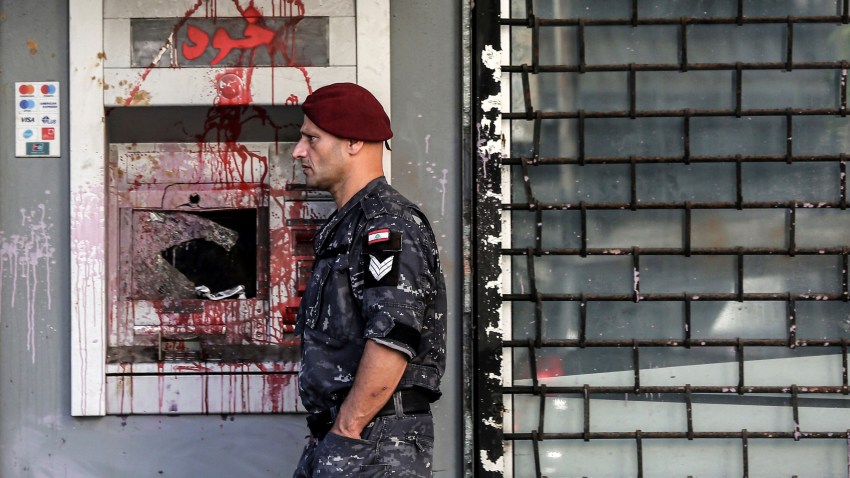BEIRUT—Last Thursday, the International Monetary Fund released a statement describing Lebanon’s situation as “very dangerous,” due to the government’s failure to implement reforms the IMF says are necessary to help the country begin to recover from its ongoing financial collapse. I got a close-up view of that very dangerous situation during a short visit to the country last week. What I saw was just a fraction of what the residents of Lebanon are enduring. But it nevertheless illustrates what Lebanon’s economic collapse means for the daily lives of ordinary people here, as they navigate a landscape that combines the volitility of a crashing stock market with the horrors of a dystopian movie.
Restaurants and cafes in Beirut are relatively busy, but their clientele is limited to people who have access to U.S. dollars through their work or remittances from relatives abroad. The collapse of the Lebanese lira makes even going out for a coffee unaffordable for most people. Lebanon imports the majority of its consumer goods, which means paying for them in dollars. Businesses in turn pass on the added costs to customers, who must pay for imported goods at the black-market exchange rate for the dollar. That is far higher than the official exchange rate—or rates, as there are at least seven different exchange rates right now, all different from the black-market rate. For some services, the official rate is set at 90,000 liras to the dollar, while for others it is 15,000. Meanwhile, banks and supermarkets use different rates that constantly change.
Although most establishments accept dollars as cash payment, some traders, including some supermarkets, refuse to accept their own advertised price in dollars. Instead, they insist on converting the listed dollar price to liras at a rate they choose, which is higher than the black-market rate. This can all get complicated at the cash register. At one such supermarket last Monday, I had to pay $10 in cash plus another 37,000 liras for a bag of powdered milk advertised at $9.94.

